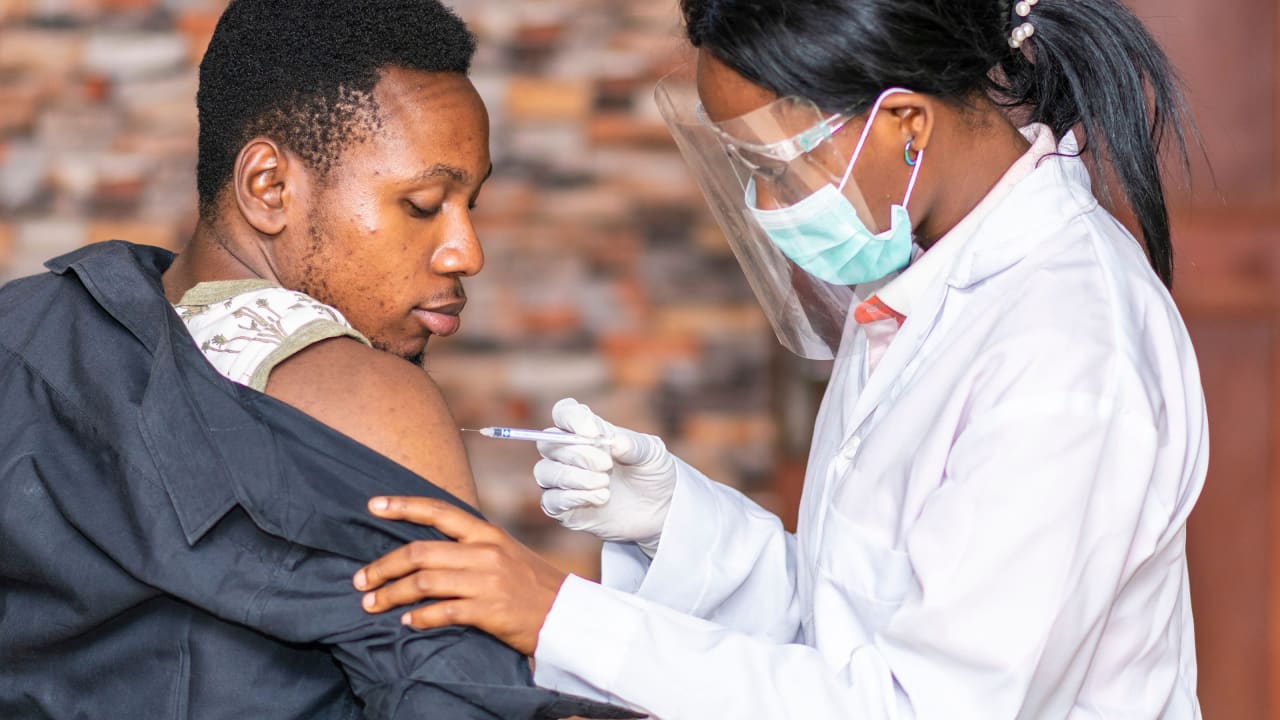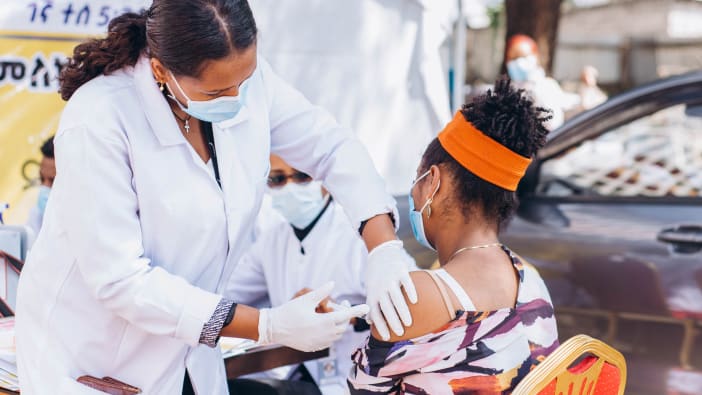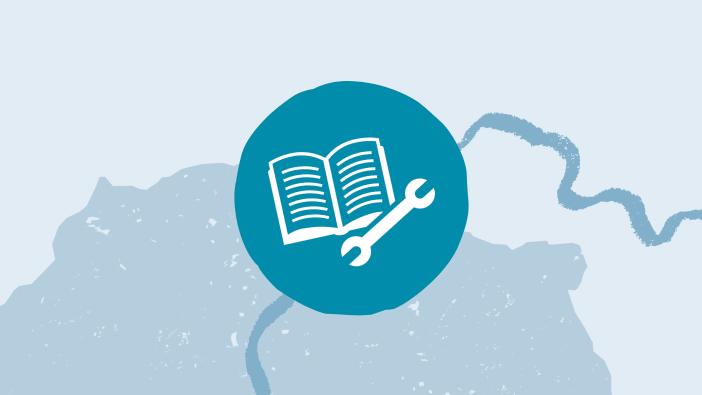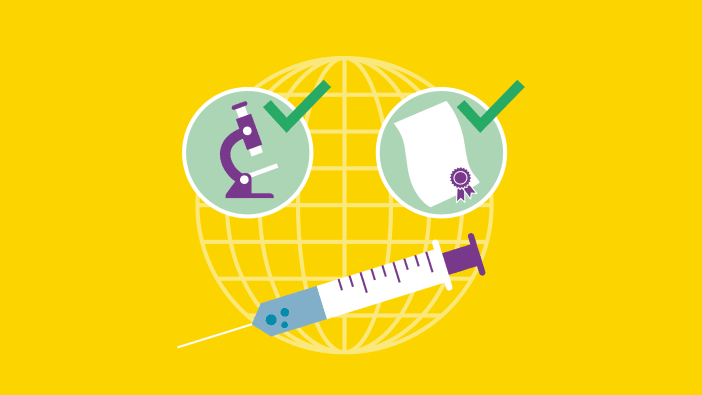The development of vaccines is a major step forward in the global struggle against Covid-19. Research has shown that the vaccines are very effective at preventing serious illness, hospitalisation and death due to the disease.
How do the vaccines work?
The vaccines teach the body's immune system to safely recognise and block the virus that causes Covid-19, without causing illness.
When someone has been vaccinated, their immune system is better able to:
- recognise the invading virus
- produce antibodies (proteins produced by the body to fight disease)
- remember the disease and how to fight it.
If the person is then exposed to the virus in the future, their immune system can quickly destroy it before they become unwell.
Rather than treating a disease after it occurs, vaccines help to prevent people from getting sick. If they do get ill after being vaccinated, their symptoms are more likely to be mild.
Are the vaccines safe?
A vaccine must be proven to be safe and effective across a broad population before it can be approved and introduced into a national vaccination programme.
Once a group of scientists has developed a trial vaccine, several different stages of testing are required. Scientists carefully assess the safety of the vaccine including any side effects, the way the vaccine affects the body's natural immune responses and the number of doses that are needed to provide sufficient protection against the virus.
Each stage tests the experimental vaccine with more and more volunteers, until thousands of people have taken the vaccine across many different groups (age, ethnicity, current health status etc). Monitoring of the vaccine continues after it is approved for use. This enables scientists to keep track of the vaccine's impact against different variants of the disease, and its safety over a long timeframe.
None of the Covid-19 vaccines approved by the World Health Organization contain any animal or human cells. Millions of doses of Covid-19 vaccines have now been safely administered across the world.
Who needs to be vaccinated the most?
The World Health Organization recommends that in areas where vaccine supply is limited, the people who are more likely to get severely ill if they get Covid-19 should be vaccinated first.
This includes:
- older people
- people with existing adverse health conditions
- people who are more likely to be exposed to the virus (such as health workers)
- pregnant women.
How many doses are needed?
The number of doses needed depends on the vaccine being used. Usually two or three doses is enough to provide protection against Covid-19 for a significant period of time.
Are there any side effects?
Like with any vaccine, some people will experience mild to moderate side effects after being vaccinated against Covid-19. This is a normal sign that the body is developing protection against the virus.
Side effects might include a mild fever, tiredness, headache, muscle ache, chills, diarrhoea, or pain and redness at the injection site. These usually pass after a day or two and can be managed with rest, plenty of non-alcoholic drinks and, if needed, medication to ease pain or a fever.
More serious or long-lasting side effects are possible, but extremely rare.








